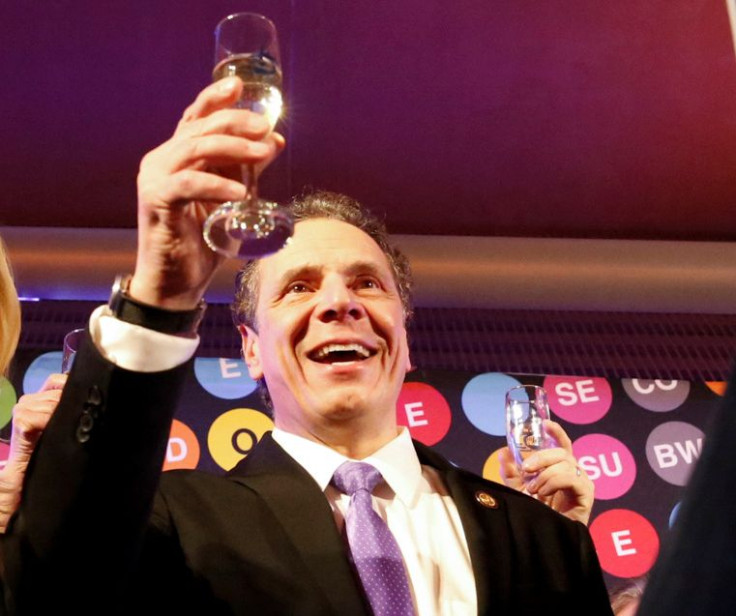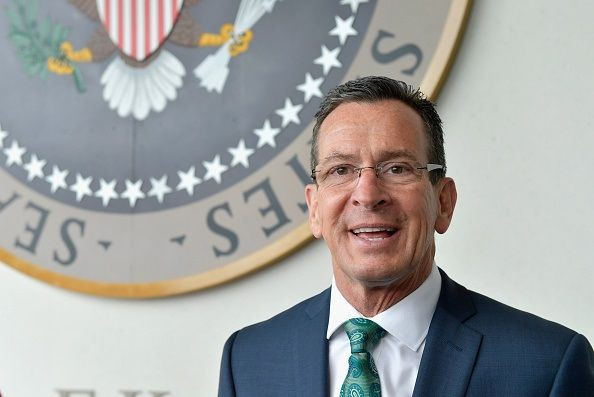Democratic Governors’ Fundraising Trails Republicans, Except When It Comes To Big Pharma

The Democratic Governors Association’s fundraising fell well short of the haul brought in by its Republican counterpart in the first half of 2017, newly released documents show. While the Republican Governors Association (RGA) raised $36 million in the first six months of this year, the DGA raised just $21 million, according to DGA IRS records reviewed by International Business Times.
While the DGA, which is currently led by Connecticut Gov. Dan Malloy, received contributions from a variety of industries and individuals — including a $2 million donation from Illinois gubernatorial hopeful J.B. Pritzker, the largest single donation the group received this year — the pharmaceutical industry was perhaps the most generous. Two dozen drug developers, manufacturers and distributors accounted for nearly $2 million of the DGA’s first-half fundraising haul. That's nearly exactly the same amount the industry gave to the RGA over the same period.
Read: Republican Governors Association Raised Money From Hedge Funds, Oil, Fossil Fuels and Pharma in 2017
The donations from big pharma come as the political debate surrounding both the opioid epidemic and rising pharmaceutical prices has migrated from the halls of Congress to the states. Illinois, Mississippi, Ohio, Oklahoma and Missouri have sued opioid manufacturers in the last year over misleading marketing practices that the states allege have contributed to the epidemic. There have been 1,000 bills and resolutions filed in state legislatures related to pharmaceutical products so far in 2017, according to the bipartisan National Conference of State Legislatures. That’s compared to 1,200 in all of 2016 and 1,186 in 2015.
The largest donation from the pharmaceutical industry to the DGA was $250,000 from the Pharmaceutical Research and Manufacturers of America, or PhRMA, the industry’s trade association, which also gave the same amount to the RGA. AstraZeneca Pharmaceuticals gave $200,000 to the DGA as one of its units is facing a lawsuit brought by the New York attorney general and others for defrauding Medicaid using confidential data on infants to increase sales. Ten other pharmaceutical or biotechnology companies gave $100,000 each to the DGA in 2017, including Pharmacy Benefit Manager (PBM) CareMark RX and Alkermes, the maker of Vivitrol, the opioid addiction treatment that has been marketed toward lawmakers by what the New York Times called a "deft lobbying strategy".

Oxycontin manufacturer Purdue Pharma, which pled guilty to criminal charges and agreed to pay $600 million in fines in 2007 for misleading regulators and medical professionals about its powerful pain killer, gave $50,000 to the DGA. Purdue is currently facing a variety of lawsuits from municipalities and is listed as a defendant in several lawsuits brought by state attorneys general. Other companies facing litigation from the states over their marketing of opioids gave to the DGA as well. Allergan, Johnson + Johnson and Teva Pharmaceuticals gave more than $25,000 each to the DGA.
Like PhRMA, many pharmaceutical and biotech companies gave the same amount to both the RGA and DGA: AstraZeneca gave matching $200,000 donations and Novo, Merck and Vertex Pharma each gave $100,000 to both parties.
The party governors associations are so-called 527 non-profit organizations dedicated to raising and spending money to elect their gubernatorial candidates. The Democrats currently control only 16 governors’ mansions around the country, compared to 33 controlled by Republicans. (Bill Walker, the governor of Alaska, is an independent.)
Part of the health care debate this year has focused on state exchanges, so it’s perhaps no surprise that health insurers also gave some of the largest contributions of the first half. Anthem donated $300,000 to the DGA and also donated $385,000 to the RGA. However, other insurers donated just to the DGA: Blue Cross Blue Shield and Aetna each gave $250,000, and Cigna gave $100,000. In May, DGA chair Malloy accused Connecticut lawmakers of being “needlessly antagonistic” toward insurance companies, like Cigna and Aetna, headquartered in his state.
Other large donations to the DGA included Walmart ($250,000), the American Beverage Association ($250,000), Wendy Kelman Neu of recycler Hugo Neu ($250,000), AT&T ($150,000), Coca-Cola North America ($125,000), the Planned Parenthood Action Fund ($100,000) and Boeing PAC ($100,000).
The RGA, which is currently chaired by Wisconsin Gov. Scott Walker, is typically a more successful fundraising outfit than the DGA. In the 2016 election cycle, the RGA raised $105 million compared to the DGA’s $44 million, according to the Center for Responsive Politics. Over the course of the 2014 election cycle, the Democrats raised $98 million, well short of the GOP’s $144 million haul.
© Copyright IBTimes 2024. All rights reserved.






















